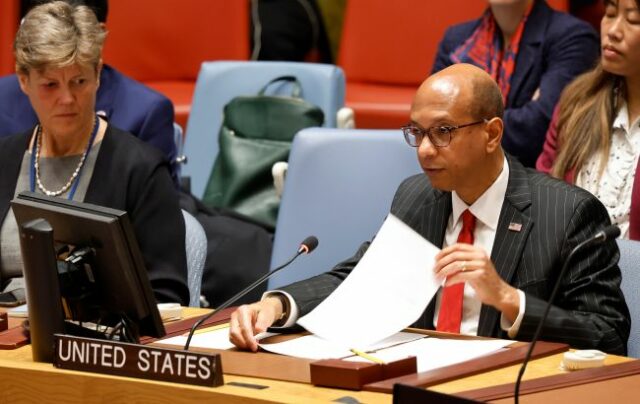The Russian Federation’s Weapon Procurement from North Korea: A Closer Look
Recent reports suggest that the Russian Federation has significantly boosted its military arsenal by procuring over 11,000 containers of weapons from North Korea. This development sheds light on the increasing desperation of Russia in its ongoing conflict with Ukraine. Such actions not only raise questions about international law but also highlight the intricate web of military alliances in today’s geopolitical landscape.
North Korean Ballistic Missiles: An Alarming Shift in Tactics
U.S. Deputy Permanent Representative to the UN, Robert Wood, has emphasized that Russian forces are deploying ballistic missiles of North Korean origin in their operations against Ukraine. Over a dozen incidents involving these missiles have been documented, underscoring a worrying shift in Russia’s military strategy. For instance, a recent attack on a civilian area outside Kyiv showcased the devastating impact of these weapons, leaving homes destroyed and families displaced.
Violation of Arms Embargo: The Cost of Military Cooperation
The procurement of over 11,000 containers of ammunition and other military supplies from North Korea not only breaches international arms embargoes but also signifies a troubling reliance on pariah states for military resources. According to the Stockholm International Peace Research Institute, arms embargo violations have serious implications, leading to prolonged conflicts and increased civilian casualties. This illustrates the lengths to which Russia will go to sustain its military efforts, often at the expense of human lives.
A Dangerous Alliance: Russia’s Growing Dependence on North Korea
The relationship between Russia and North Korea has taken a dangerous turn since a pivotal meeting between Vladimir Putin and Kim Jong Un. This partnership has increasingly shaped Russia’s military endeavors as it seeks to replenish its supplies in the face of international sanctions. Analysis from experts in international relations reveals that such alliances can lead to more aggressive posturing on the global stage, as nations find support from like-minded regimes.
Understanding the Broader Implications
The implications of this military cooperation extend beyond the immediate conflict. As Russia cultivates support from North Korea, it risks isolating itself further from the international community. This trend is concerning for global peace and stability, as countries with authoritarian regimes may feel emboldened to engage in similar actions. Historical parallels can be drawn with past conflicts where rogue nations formed alliances, ultimately contributing to wider destabilization.
Conclusion: Navigating a Complex Landscape
As the situation evolves, it’s crucial for global leaders and organizations to monitor these developments closely. Engaging in diplomatic dialogue and reinforcing enforcement of international laws can help mitigate the risks posed by such alliances. In the face of adversity, the international community must strengthen its resolve against the erosion of peace, advocating for a world where cooperation prevails over conflict.
To stay informed on this issue, consider following credible sources such as the UN Office for Disarmament Affairs and the Stockholm International Peace Research Institute, which provide valuable insights and data on global arms dynamics. Together, we can foster an understanding of these critical developments, paving the way for a more peaceful future.






